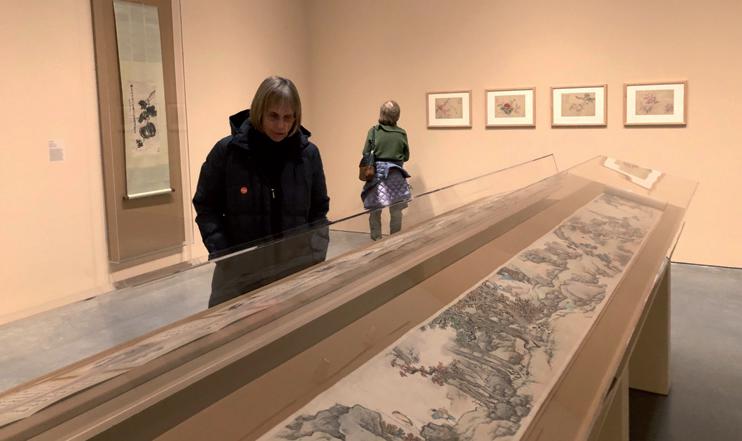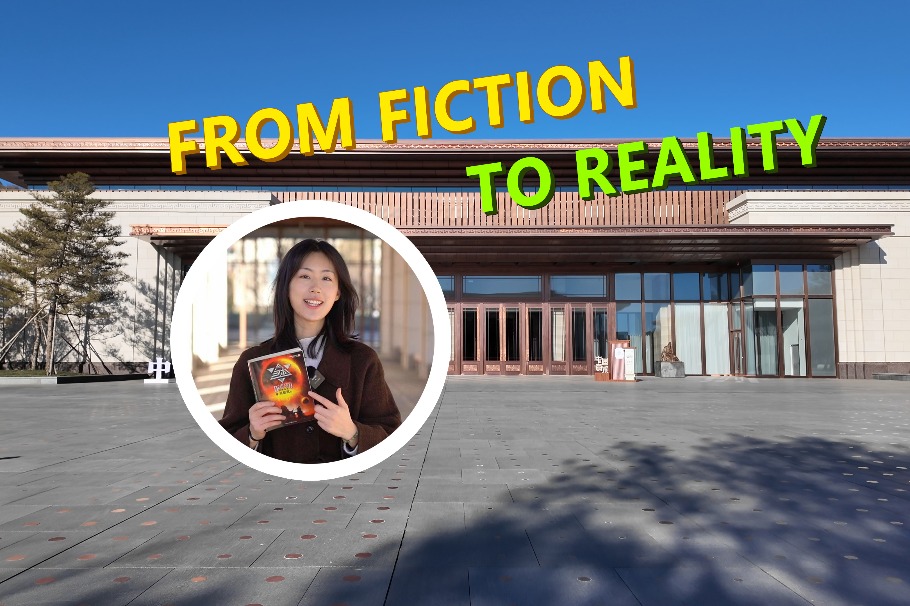Ming Dynasty art unfolds at exhibition at UC Berkeley
By Lia Zhu in Berkeley, California | China Daily USA | Updated: 2018-03-02 23:45

An exhibition of Chinese art and literature from more than 300 years ago is expected to help American audiences better understand Chinese culture.
The exhibition, Cal Conversations: Dreaming the Lost Ming, is on view through May 13 at the UC Berkeley Art Museum and Pacific Film Archive (BAMPFA).
By examining the paintings and literature of 17th century China, the exhibition offers insights into the ephemeral world portrayed in the play The Peach Blossom Fan (1699), which narrates a tragic tale of dynastic collapse, lost futures and social disarray.
The exhibits, including landscape paintings, bird-and-flower paintings, and text from the plays and memoirs of the period, are drawn mostly from BAMPFA's permanent collection.
The works were organized around the Ming Dynasty city of Nanjing, a flourishing urban center of pleasure and artistic innovation that was decimated in 1645 by the conquering Qing army.
What's special about this show is that it was designed by 11 students from UC Berkeley Professor Sophie Volpp's seminar: "17th-Century Nanjing: Painting, Theater, Memoir".
Each of the students selected a work of art and investigated. They also translated the inscriptions and wrote essays for a guide that accompanies the exhibition.
Some of the students had never before viewed actual Chinese paintings up close, so they shared in their essays their personal experiences and how they began to understand the paintings, according to Julia White, senior curator for Asian art at BAMPFA.
"I think sometimes museum professionals come with too much knowledge, so they assume a lot," said White. "When the general public comes to the show, they have an advantage in the guide, which is written in a fresh and different way."
In the album of Flowers and Landscapes by Yun Shouping (1633-1690), Jon Soriano, one of the student curators, explored what the artist's intentions were and how the flowers are related with The Peach Blossom Fan in terms of imagery.
Different from the "more familiarly recognized" styles in Chinese art history, Yun adopted a "boneless" style, which lacks contour lines delineating petals, leaves and other forms, Soriano says in his essay.
In the painting The Solitary Willow Dwelling by Gong Xian in 1663 and Lotus by Shitao in 1706, the subjects are depicted in an eccentric manner. Like other artists from the Ming-Qing transition period, Gong Xian and Shitao found solace in eccentricity as they tried to come to terms with nostalgia for a lost past.
Both of the students interpreting the two paintings translated the inscriptions and investigated the relevance of the painting to what was happening in China during that time.
It's the first time that Nuredin Indris, a senior student at UC Berkeley, has viewed traditional Chinese paintings with his own eyes. He said he was impressed by the artist's ability to express the beauty of lotus simply with a brush and only black ink.
"It (the exhibition) gives us an insight into the world of ancient Chinese culture, and by looking carefully at the compositions, for instance, you could see immediately the appreciation of nature and also the way that man is exhibited within nature," White said.
"A lot of Americans are quite interested in the popular Chinese culture, like the Year of the Dog and what that means," she said. "I'm hopeful that this kind of exhibition will show the refined quality of that culture."
























